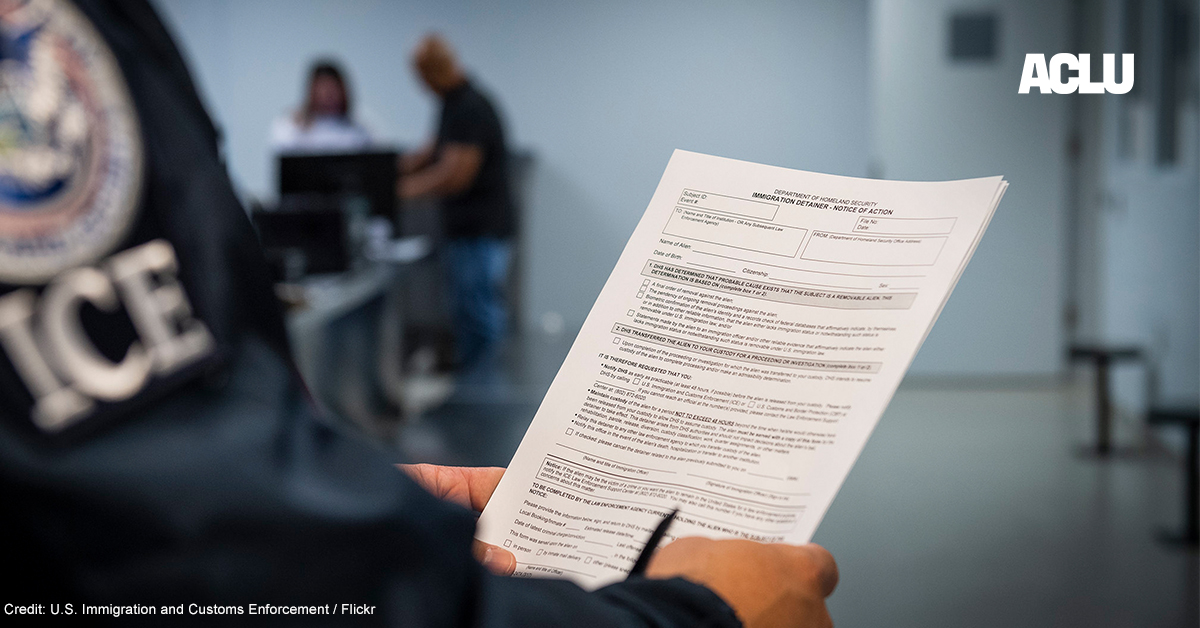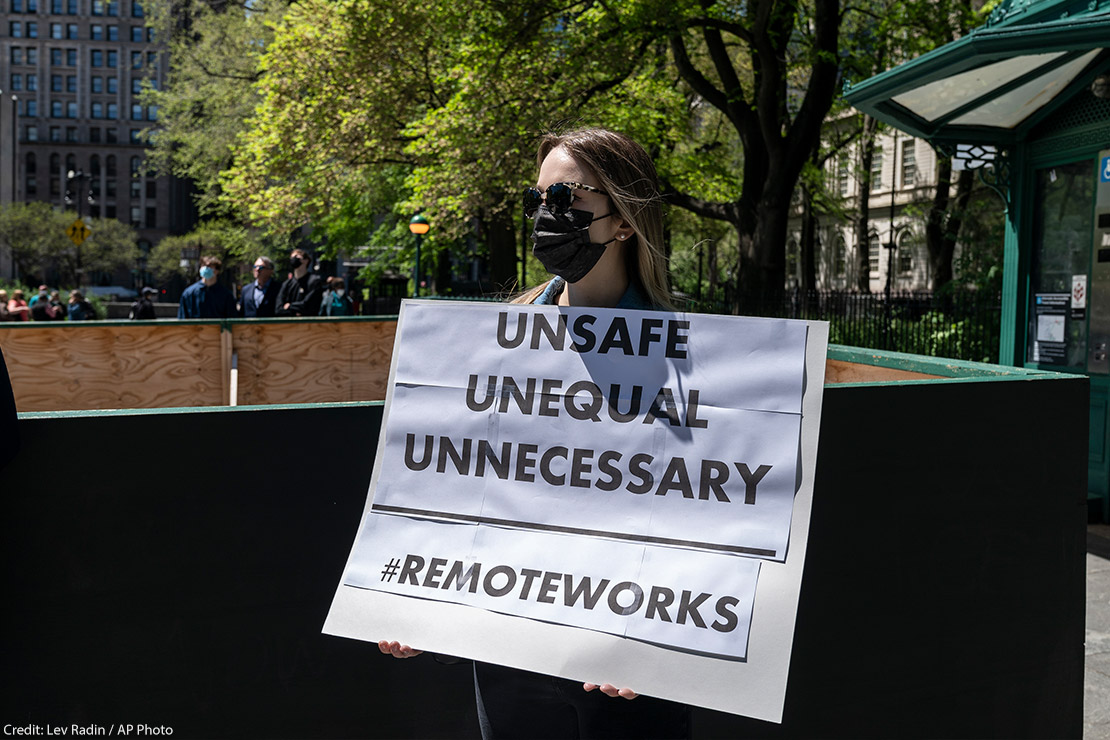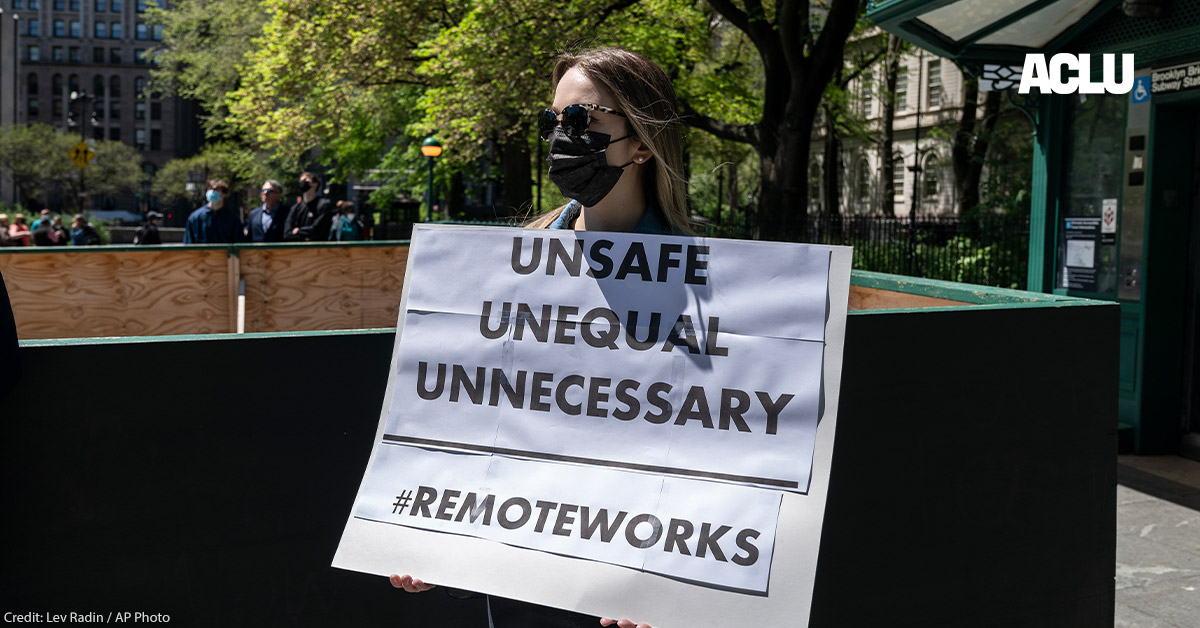This post was originally published in The Palm Beach Post.
Former President Donald Trump stoked his 2016 election campaign by labeling immigrants as “criminals, drug dealers, rapists, etc.” During four years in office, he vilified immigrant communities, co-opted local law enforcement to collaborate in hunting them down and wasted billions of taxpayer dollars building a wall on our southern border that serves, primarily, as a failed monument to prejudice.
Another “accomplishment” of the past four years was the unnecessary — and extremely expensive — increase in the number of immigrants held in federal detention centers.
Since 2017, 40 new detention facilities have opened, most of them run by private, for-profit operators. Many others are run by local governments lured by the same sordid promise of money at the expense of immigrants’ rights. Before the COVID-19 pandemic, over 55,000 people per night were jammed in those centers, including in facilities across Florida.
This system has long been plagued by dismal, life-threatening conditions and severely deficient health care. Nationwide in 2020, 21 people reportedly died in ICE detention (including at least one death in Florida) or shortly after being released. Eight of those deaths were due to COVID-19, according to the Vera Institute. That’s the highest annual death toll since 2005.
Despite these realities, in fiscal year 2021, the Trump administration requested taxpayers increase funding for ICE detention to more than $4 billion, with the intent of expanding daily detention capacity to 60,000. Expanding this inhumane system is the opposite direction we should have been moving.
But the COVID-19 pandemic highlighted that a different way is possible, and the release of tens of thousands of detained persons across the country illustrates how unnecessary our bloated system is. In response to public outcry over the pandemic and litigation by immigrant advocates, ICE has been forced to reduce the number of people in detention to 14,000 and the new administration needs to ensure that the numbers are reduced even more.
In South Florida alone, last May a federal judge ordered three immigration detention centers to lower their total population to no more than 75% of capacity. On April 28, the ACLU sent a letter to Department of Homeland Security Secretary Mayorkas calling for the closure of 39 detention facilities across the country, including three in Florida: Baker County Detention Center, Glades County Detention Center, and the Krome North Service Processing Center. The Biden administration should immediately close these facilities with egregious records of abuse.
Beyond these 39 facilities, all detention centers must immediately end inhumane conditions, including the elimination of solitary confinement and forced feeding, and seriously investigate civil rights and civil liberties complaints.
Florida was routinely among the 10 states with the highest levels of detention, and we must do more to protect immigrants detained in our communities.
In one particular Florida facility, the Glades County Detention Center, conditions have become so life-threatening that a coalition of advocacy organizations filed a civil rights and civil liberties complaint in February with the U.S. Department of Homeland Security. The ACLU’s letter echoes calls from organizations and advocates in Florida who are calling for ICE to terminate their contract with Glades County, among other recommendations, in light of the testimonies in the complaint and the long history of horrific conditions in this facility.
This is the same Florida facility where ICE reported a death due to COVID-19 last summer, days after a federal judge dismissed a request by the ACLU to urgently release nine medically vulnerable persons detained there. There have been a combination of at least seven complaints and lawsuits filed regarding Glades alone. Troubling reports of conditions in this facility and others in Florida continue on a regular basis.
ICE also needs to end the practice of guaranteeing payment to detention contractors for filling a certain number of beds every night, a policy that ensures they remain profitable and also guarantees that thousands of immigrants are unnecessarily detained, separated from their families and placed at risk due to crowded conditions and poor health services. Financial incentives should not be regarded over human life.
This model is unsustainable in the end. This is why the Wakulla County Sheriff's office recently terminated its contract with ICE deep in debt, after profiting from the detention of immigrants for the past 30 years. The warehousing of immigrants is unnecessary and costly. Local governments in Florida and elsewhere have no business supporting this cruel and inhumane system.
Most of the reforms we need can still be achieved in the first year of the Biden administration, without the involvement of Congress. While initial efforts to recalibrate immigration enforcement priorities are going in the right direction, they still fall far short of what is needed to reverse the past four years of immigration detention policies driven by racist rhetoric, demonization of immigrants, malicious separation of families, fiscal irresponsibility and a cruel disregard for the crucial contribution that immigrants continue to make to our society.
What we know for certain is that, unless the Biden administration acts decisively to address the detention problem at the heart of our immigration system, the countless human rights and civil rights abuses we have already witnessed will continue.




